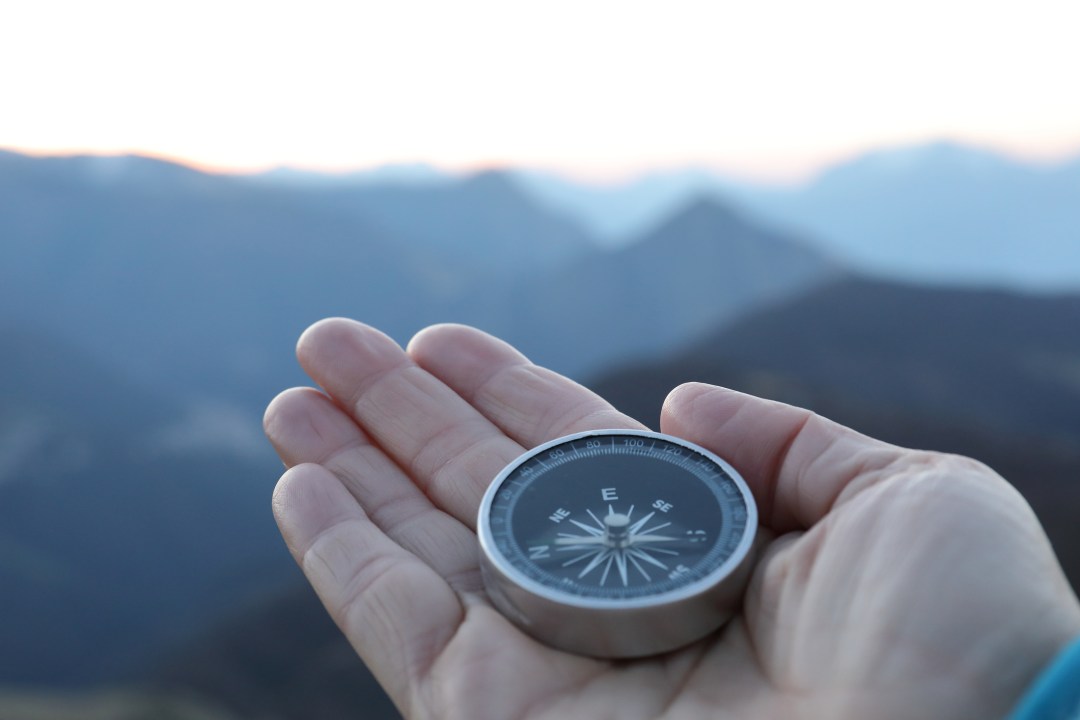Let your inner wisdom guide you
Finding it difficult to make a decision? When we get quiet and listen to our inner wisdom we become better equipped to make more confident decisions in life and thrive. But where do we begin? Read on for advice from The School of Life...

We start our lives surrounded by people who know a great deal more than we ever could. To a four-year-old, a very average adult is a miracle of supreme intelligence. They know how to drive a car, say hello in several different languages, pay for a meal with a credit card and describe who Napoleon Bonaparte was – incomprehensible mysteries when one has only spent a few summers on the planet.
The whole of formal education feels like a process of catching up: we are required to take in information and techniques that our parents and teachers built up over decades. A central assumption embeds itself in our developing minds: we don’t know. But they do.
As we reach adulthood, a benign version of our instinctive deference shows up in our willingness to trust experts. We don’t know what checks should be made on the quality of the domestic water supply, but we’re sure the people in charge of the reservoirs know what they’re doing and that we can therefore drink a glass of water from the kitchen tap without enquiry or anxiety. We don’t know how much fuel a plane needs to get safely from Dubai to Singapore, but we’re confident the people operating the airline will and so can rest easy in our seats. On a whole range of technical and scientific matters, we surrender scepticism to others, without having any independent ability to check the evidence or master the intricacies of the arguments. They know – and we’re happy to assume they must.
“Much that goes wrong in our lives can be traced back to an extension of this form of deference to areas where it doesn’t naturally belong and where it stymies our questions and interpretations of our needs.”
There is likely to be much that, somewhere in our minds, constantly strikes us as illogical, unnecessary or sad about the way the world is presently arranged. There are moments when we feel we have understood a situation or read a dilemma with a clarity or wisdom that appears to elude everyone else. We can wake up at unusual hours with a powerful impression of what it would be right and good for us to do next but that, we know, would have no support from anyone in our circle.
Faced with the original or contrary fruits of our own minds, our default position tends to be – after a brief moment of rebellion perhaps – that we cannot possibly be right, that there must be a reason why we are mistaken, that others will naturally understand certain complicated and often regrettable things better than we do, just because they always have. It doesn’t seem quite correct to us, but what could that ultimately matter? Someone will know…
Part of the poignancy of the Christian nativity story, even for those of us who don’t ‘believe’ in it, is the suggestion that a very extraordinary thing unfolded in the most ordinary of settings. The son of God is born not in a palace surrounded by attendants and gilded furniture, but in an agricultural outhouse amid bellowing animals and the smells of hay and excrement. In a 15th-century painting of the scene by Robert Campin, the barn is a mess, the beams are wonky, most of the sidewalls are missing, outside the sky is overcast and the trees bare; it feels like just another ordinary day in a not especially interesting corner of our banal world – and yet, as the painting’s original viewers would have powerfully felt, the most significant moment in the history of humankind has just unfolded.
One moral we might usefully extrapolate from this story is that very special things, which include very special thoughts, can come into existence pretty much anywhere. Good ideas don’t have to be born in palaces, or indeed institutes of advanced research, government think tanks or the minds of acclaimed professors. They could happen right now, to someone like us, in the kitchen or while we’re on our way to buy some washing powder or post a letter. The ordinary world in which we dwell is not divorced from the precinct of good ideas; it’s where good ideas are constantly coming to mind, begging to be nurtured by us until they can develop to ‘adulthood’.
“Far from teetering on the verge of arrogance (as we may believe we are), most of us are labouring under an unduly modest assessment of our right to think.”
However implausible it may sound, we are operating with essentially the same piece of mental hardware as was used by Aristotle, the Buddha and Shakespeare. We might suppose that their extraordinary contributions must have been the result of a very special process of education or some kind of native ‘genius’. But we are better read and better informed than they ever were – and our tools are similar. The crucial ingredient lies neither in mental equipment nor in training, but in what a person can allow themselves to believe they are capable of; the limiting factor is mental low self-esteem.
We have been a bit too polite for too long. We have been dangerously reluctant to imagine that, even on quite central points, ‘they’ might be misguided. We haven’t dared to think, for instance, that the head of a school (who did a PhD at a top university) might actually have very little insight into the real sources of educational fulfilment. Or, around architecture, we suppose that if a building wins a major award, it must genuinely represent the desirable future of construction, even if we ourselves – secretly – think it’s an aggressive sham. Even though the ultimate purpose of architecture is to please people, we discount the notion that our own reaction, carefully sifted and articulated, might be decisively relevant.
The way we marry, the education of our children, the way we structure financial rewards, our approach to advertising, the way we report news, all these aren’t founded on inviolable laws of nature; all might be ripe for questioning and improvement.
“Our problem is compounded because our education system primes us to feel that the right thing to do – whenever we want to understand something – is to read what someone else has to say on the topic.”
In the process, we automatically give up on an equally and often far richer source of insight: our own experience. If we want to know the nature of love, for instance, it may not be necessary to do a psychology degree; we already have the information in our heads because we have had relationships, and so know loving and being loved at a level of richness no other data source could rival.
We should revere the art of paying very close attention to what we have already thought and felt: to the accurate recollection and examination of the nuances of our own emotions. To really understand an issue, we may need to go, not to the library, but out for a long walk or to take a long bath, two activities in which we’re more likely than normal to think our own thoughts.
If we try to list things that nobody knows, we typically reach for highly arcane issues: the internal structure of a black hole; how the rules of logic are encoded in the brain; or what the highest possible prime number is. It would be more accurate, though, to say that nobody knows many of the most urgent things about modern life. The list of currently unsolved problems includes:
- How to make it normal for marriages to be happy.
- How to build cities that are as graceful and charming as the centres of Toulouse or Seville.
- How to properly educate ourselves.
- How to ensure we end up doing a job we really like.
- How to have more interesting conversations – both in quality and quantity.
- How to reliably align profit with virtue.
- How to harness our own creativity.
The frontier of knowledge isn’t far away: it’s in our bedrooms, around our dinner tables and on our local streets. Far from practically all the important things being already known, we are collectively still very ignorant about how to do some very basic things in our lives. The areas of precise knowledge are small – though very welcome – patches of illumination in the far larger, murky arena of existence. This should not be a cause of despair but of liberation.
In order to give our minds the true respect they deserve, we may need to learn to be a little less respectful of the minds of others. We might even need to be somewhat rude.
“The frontier of knowledge isn’t far away: it’s in our bedrooms, around our dinner tables and on our local streets”
The 19th-century German philosopher Arthur Schopenhauer argued in favour of assuming that everyone we meet is pretty much an idiot – and therefore not worth paying too much attention to – as a way to leave ourselves free to chart our own course: ‘Would a musician feel flattered by the loud applause of an audience if he knew that they were nearly all deaf?’ After so long of thinking of ‘them’ as very clever, it might be time, if we are to do ourselves justice, to start to think of ‘them’ as, occasionally, gloriously, not having much of a clue.
This is an edited extract from ‘What They Forgot To Teach You At School’ by The School of Life, £15, out now.
Photograph: Getty Images








